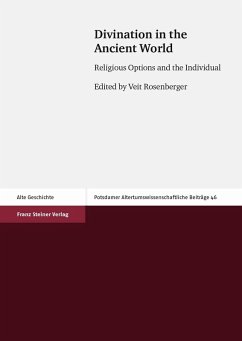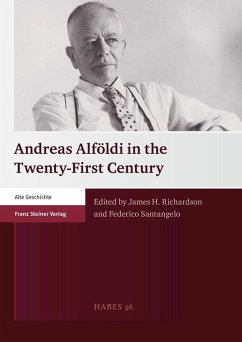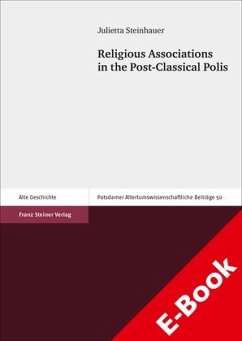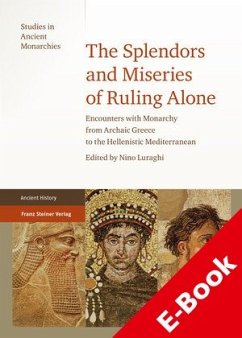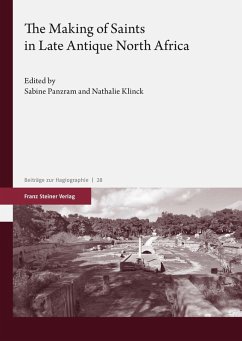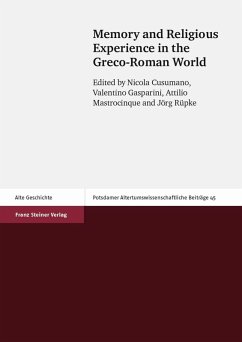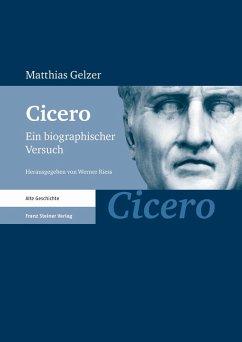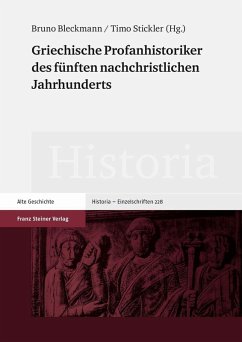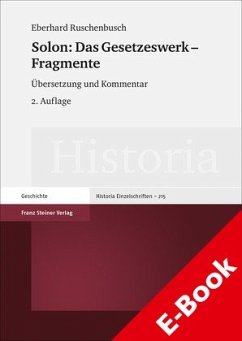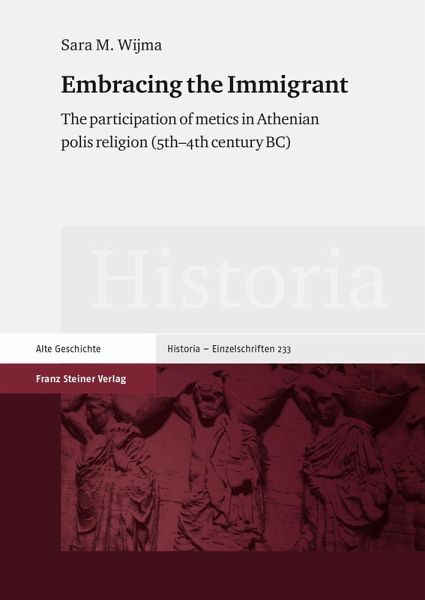
Embracing the Immigrant (eBook, PDF)
The participation of metics in Athenian polis religion (5th-4th century BC)

PAYBACK Punkte
0 °P sammeln!
What does it mean to belong to a community? How is membership conceptualised and in what way is the position of newcomers negotiated and the community's cohesion secured? Although no clear definition of citizenship survives from classical Athens, many sources include the statement that belonging to the polis consisted of participation in public life, often specified as sharing in the ritual obligations of the Athenians. Contrary to the still prevalent understanding of the Athenian polis as a city-state run by politically privileged men, this e-book explores this notion of the polis as a cultic...
What does it mean to belong to a community? How is membership conceptualised and in what way is the position of newcomers negotiated and the community's cohesion secured? Although no clear definition of citizenship survives from classical Athens, many sources include the statement that belonging to the polis consisted of participation in public life, often specified as sharing in the ritual obligations of the Athenians. Contrary to the still prevalent understanding of the Athenian polis as a city-state run by politically privileged men, this e-book explores this notion of the polis as a cultic and participatory community. In that context it reconsiders the position of immigrants in Athens, who are commonly viewed as outsiders or even anti-citizens in modern research. It is argued that as immigrants were gradually included in Athenian polis religion as metics, they should, at least to a degree, be considered members of the polis. In order to arrive at a better understanding of the ways in which the demos conceptualised this separate membership for immigrants, this e-book investigates the participation of metics in several polis and deme rites.
Dieser Download kann aus rechtlichen Gründen nur mit Rechnungsadresse in A, B, BG, CY, CZ, D, DK, EW, E, FIN, F, GR, HR, H, IRL, I, LT, L, LR, M, NL, PL, P, R, S, SLO, SK ausgeliefert werden.




